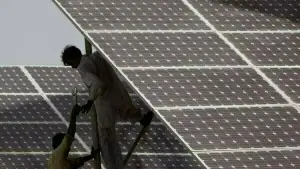The lawyer who saved Aasia Bibi from the gallows left the country on Saturday, saying his life was under threat.
"In the current scenario, it's not possible for me to live in Pakistan," the 62-year-old told AFP before boarding a plane to Europe early Saturday morning. "I need to stay alive as I still have to fight the legal battle for Aasia Bibi," he said.
A five-point agreement seen by AFP, signed by both parties, said the government would not object to an appeal of the verdict, filed earlier in the Supreme Court. When asked about the outcry, Mulook said it was "unfortunate but not unexpected".
"What's painful is the response of the government. They cannot even implement an order of the country's highest court," he said, adding that "the struggle for justice must continue". According to the agreement, which came after a failed first round of talks, legal proceedings will follow to impose a travel ban on Bibi and stop her leaving the country.
"Her life would be more or less the same, either inside a prison or in solitary confinement for security fears" until a decision on the appeal, said Mulook. Meanwhile, the husband of Aasia Bibi on Saturday criticised a government deal with protestors that left her in legal limbo, and called on authorities to protect her. "It is wrong to set a precedent in which you pile pressure onto the judiciary," Bibi's husband Ashiq Masih told German Deutsche Welle radio.
He said the government should never have yielded to pressure from protesters. Masih said the court had been "very courageous" to acquit his wife, an illiterate mother in her 50s whose case started in 2009 while she was working in the fields. "The current situation is very dangerous for us. We have no security and are hiding here and there, frequently changing our location," Masih said.
BR100
16,307
Increased By
236.2 (1.47%)
BR30
51,537
Increased By
1163.4 (2.31%)
KSE100
157,953
Increased By
1775.7 (1.14%)
KSE30
48,199
Increased By
520.5 (1.09%)






















Comments
Comments are closed.